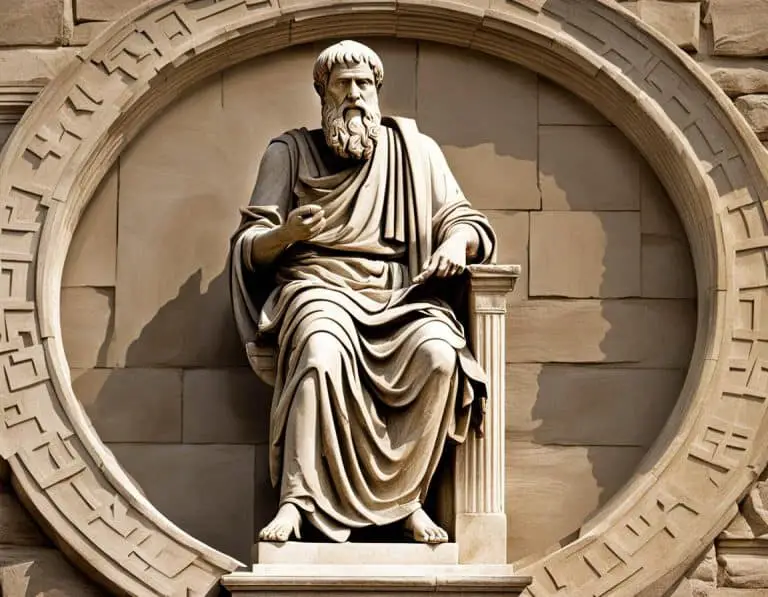Plato’s Influence on Western Political Thought
Plato’s influence on Western political thought is profound and enduring. His works, such as “The Republic” and “The Laws,” laid the foundation for many key concepts in political theory that continue to shape governance systems today. Plato’s emphasis on the importance of justice, the role of the philosopher-king, and the ideal state has influenced thinkers throughout history, including influential figures like Machiavelli, Hobbes, and Rousseau.
The dialogue format of Plato’s writings not only made his ideas accessible but also encouraged critical thinking and debate. By exploring topics such as the nature of justice, the ideal forms of government, and the relationship between individuals and the state, Plato challenged his readers to question existing power structures and consider alternative models of governance. Plato’s enduring legacy lies in how his work continues to stimulate discussions on the nature of politics and the quest for a just society.
Comparison with Other Political Philosophers
Plato’s political philosophy stands out amongst his contemporaries due to its emphasis on the role of philosopher-kings in governance. While Aristotle focused on the idea of a polity where citizens shared power, Plato argued that only those who possessed wisdom and a deep understanding of the truth should rule. This stark contrast highlights the fundamental disagreement between the two great thinkers on the nature of political leadership.
Moreover, when compared to Machiavelli’s pragmatic approach to politics, Plato’s vision appears idealistic and rooted in ethical principles rather than practicalities. Machiavelli famously stated that the ends justify the means, advocating for rulers to do whatever is necessary to maintain power. In contrast, Plato believed in the importance of justice, virtue, and the common good as guiding principles for a harmonious society. The clash between these two viewpoints underscores the enduring relevance of Plato’s ethical foundations in political discourse.
Ethical Foundations of Plato’s Political Ideals
Plato’s political philosophy is deeply rooted in his ethical foundations. Central to his ideals is the belief that a just society is one where individuals live according to the principles of wisdom, courage, moderation, and justice. These cardinal virtues, proposed in his seminal work “The Republic,” form the bedrock of Plato’s vision for an ideal state where harmony and order prevail.
In Plato’s ethical framework, justice is not merely a concept confined to individual behavior but extends to the organization of the entire society. He argues that a just society mirrors the structure of the soul, where reason rules over the spirited and the appetitive parts. This hierarchical arrangement parallels the ideal governance system in which philosopher-kings, guided by reason and wisdom, lead the state towards the common good.
Connection between Ethics and Governance
Plato’s philosophy highlights the intrinsic link between ethics and governance, emphasizing the importance of moral principles in the functioning of a just society. In Plato’s view, ethical considerations should guide political decisions and actions to ensure the well-being of the community as a whole. He believed that rulers should be virtuous individuals who prioritize the common good over personal gain, setting a standard of integrity for the citizens to follow.
Furthermore, Plato argued that a harmonious society can only thrive when its governance is grounded in ethical values. By intertwining ethics with political structures, he aimed to establish a system where justice is not merely a legal concept but a moral imperative woven into the fabric of policymaking and administration. For Plato, ethical governance fosters unity, equity, and stability within a state, creating a virtuous cycle that uplifts the entire society.
Plato’s Vision for a Utopian Society
Plato’s vision for a utopian society is deeply rooted in his belief in the philosopher-king, a wise ruler who governs with virtuous intentions and a deep understanding of justice. In his work “The Republic,” Plato outlines a society where individuals are assigned roles based on their natural abilities and aptitudes, leading to a harmonious and just community where each person contributes to the greater good. Through education and a strict adherence to moral principles, Plato believed that society could achieve true justice and reach its highest potential.
Central to Plato’s utopian vision is the idea of a perfectly ordered state, where reason reigns supreme and the common good takes precedence over individual desires. He envisioned a society where citizens lived in accordance with the virtues of wisdom, courage, moderation, and justice, guided by philosopher-kings who possessed a deep understanding of the true nature of reality. For Plato, the key to creating a utopian society lay in cultivating a sense of communal unity and a shared commitment to the common good, rather than focusing on personal gain or ambition.
Challenges to Implementing Ideal State
One of the significant challenges in implementing Plato’s ideal state lies in the practicality of realizing his vision in the complexities of modern society. The detailed structure of the Republic, with its rigid class system and philosopher-king rulers, may prove difficult to translate into a functioning government that caters to the diverse needs of a contemporary population. Furthermore, the idea of a society devoid of private property and familial ties can clash with the deeply ingrained values of individualism and personal autonomy prevalent in many societies today.
Moreover, Plato’s emphasis on the existence of an ideal form of governance, where wisdom and virtue guide the rulers, raises concerns about the feasibility of identifying and appointing such individuals in the real world. The proposition that only those who have undergone rigorous philosophical training can lead a state effectively may be met with skepticism in a society that values a wide range of skills and expertise in its leaders. Implementing Plato’s political ideals would require a fundamental shift in societal values and structures, posing a considerable obstacle to the realization of his utopian society.
Related Links
Why Plato’s Political Ideas Are Relevant Today
What Impact Did Plato Have on Political Theory?
